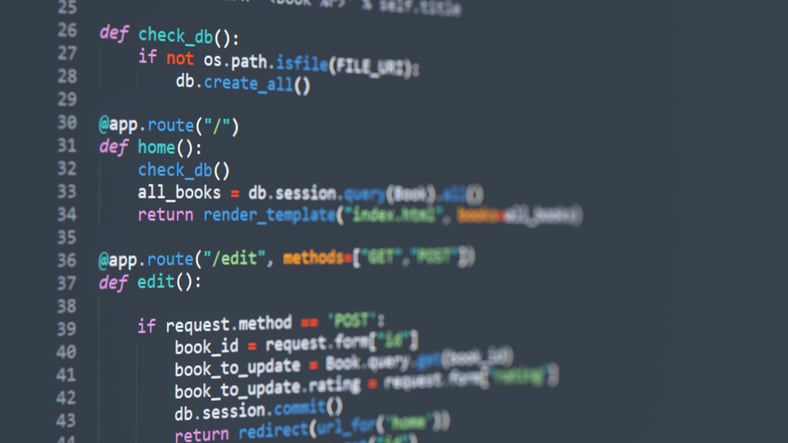4 min read
Top Data Science Coding Bootcamps: Launch a High-Paying Career
Best Data Science Coding Bootcamps: Learn to Code for a Lucrative Career
4 min read
![]() The Amazing Team at Skills Data Analytics
:
Jun 20, 2024 9:30:00 AM
The Amazing Team at Skills Data Analytics
:
Jun 20, 2024 9:30:00 AM
Coding Boot Camp: A Comprehensive Introduction
In the ever-evolving landscape of technology, there is a constant demand for skilled programmers and developers. However, traditional education systems often fail to keep up with rapidly changing market trends and are unable to produce enough qualified individuals to meet this demand. This is where coding boot camps step in, offering intensive and practical training programs to quickly transform individuals into competent coders. In this article, we will delve into the world of coding boot camps, exploring their definition, key components, implementation steps, benefits, challenges, analytics report, case studies, future trends, and provide a list of relevant FAQs.
Definition
A coding boot camp is an educational program designed to teach individuals the skills needed to become proficient in computer programming within a short timeframe. These accelerated learning programs typically last a few weeks to a few months and are focused on hands-on, project-based learning. Boot camps are usually intense and immersive experiences, designed to provide a comprehensive understanding of coding languages, frameworks, and tools that are most in demand in the tech industry.
Key Components
A coding boot camp consists of several key components that contribute to its effectiveness:
1. Curriculum: The curriculum of a coding boot camp is carefully crafted to cover essential programming languages and tools. It focuses on practical skills that align with industry needs, thus ensuring that graduates are job-ready.
2. Expert Instructors: Boot camps employ experienced industry professionals as instructors who possess a deep understanding of the subject matter. These instructors guide students through the program, answering questions and providing real-world insights.
3. Project-Based Learning: Boot camps adopt a project-based learning approach, where students work on real-world projects to apply their newly acquired skills. This hands-on experience helps them develop problem-solving abilities and build a portfolio of work to showcase their competency to potential employers.
4. Supportive Environment: Boot camps provide a supportive learning environment where students can collaborate, seek help, and learn from their peers. This collaborative approach fosters a sense of community, boosting motivation and learning outcomes.
Implementation Steps
Implementing a coding boot camp involves several crucial steps:
1. Needs Assessment: Identify the specific coding skills and languages that are in highest demand in the job market.
2. Curriculum Development: Design a comprehensive curriculum that covers the identified skills and languages, ensuring it is up-to-date with current industry practices.
3. Instructor Selection: Recruit experienced industry professionals to serve as instructors who can effectively deliver the curriculum and support students.
4. Physical or Virtual Infrastructure: Establish the necessary physical or virtual infrastructure to facilitate the learning environment, including computer labs, coding environments, and collaboration tools.
Benefits
Coding boot camps offer numerous benefits for individuals looking to break into the tech industry:
1. Speed and Efficiency: Boot camps provide a fast-track to learning programming skills, enabling individuals to transition to a new career or upskill within a short timeframe.
2. Real-World Relevance: Unlike traditional academic settings, boot camps focus on teaching practical skills that align with industry needs, directly preparing individuals for the job market.
3. Portfolio Building: Through project-based learning, students create a portfolio of work that showcases their abilities to prospective employers, significantly improving their job prospects.
4. Networking Opportunities: Boot camps foster a supportive community of peers and industry professionals, providing opportunities for networking and mentorship.
Challenges
Although coding boot camps offer numerous advantages, they also come with certain challenges:
1. Intensive Time Commitment: Boot camps require a significant time commitment, often requiring full-time attendance for several weeks or months.
2. Fast-Paced Learning: The fast-paced nature of boot camps can be overwhelming for some individuals, requiring them to dedicate extensive time and effort to keep up with the curriculum.
3. Cost: Boot camps can be expensive, and some individuals may find it challenging to afford the tuition fees.
Analytics Report
An analytics report that analyzes the outcomes and success rates of coding boot camp graduates can provide valuable insights for students and stakeholders. This report would present data on metrics such as job placement rates, average starting salaries, and post-graduation satisfaction levels. It would also analyze the impact of boot camps on closing the skills gap and diversifying the tech industry workforce.
Case Studies
Examining case studies of individuals who have successfully completed coding boot camps can offer concrete examples of their effectiveness. These case studies could highlight the career transitions, job placements, and salary increases experienced by graduates. They could also provide insights into the learning experience, challenges faced, and how they overcame them.
Future Trends
The future of coding boot camps is promising, with several notable trends emerging:
1. Online Boot Camps: The rise of remote work and e-learning has led to the proliferation of online boot camps, offering flexibility and accessibility to individuals globally.
2. Specialized Boot Camps: As the tech industry continues to evolve, specialized boot camps focusing on specific programming languages or industry sectors are expected to gain popularity.
3. Corporate Training Programs: Companies are increasingly recognizing the value of coding boot camps and are sponsoring or creating their own internal training programs to upskill their workforce.
For in-depth information and resources on data analytics, we recommend visiting SkillsDataAnalytics.com. This website offers comprehensive guides, tutorials, and case studies to help individuals learn and excel in the field of data analytics.
Relevant 5 FAQs:
Yes, many coding boot camps are designed to accommodate beginners with no prior coding experience. These programs often start with foundational concepts and progressively build up to more complex topics. However, the intensity and pace can be challenging, so a basic understanding of problem-solving and logical thinking can be beneficial.
The duration of coding boot camps varies, typically ranging from 8 to 24 weeks. Full-time boot camps usually last between 12 and 14 weeks, while part-time programs can extend up to 24 weeks or more. Some boot camps also offer self-paced options, allowing students to complete the curriculum at their own speed.
Common programming languages and technologies covered in boot camp curriculums include:
Some boot camps may also cover languages like Java, PHP, and C#, depending on their focus.
Yes, many coding boot camp graduates secure employment in the tech industry. Boot camps often provide career services, such as resume workshops, interview preparation, and networking opportunities with potential employers. However, success in securing a job can depend on various factors, including the individual's prior experience, the quality of the boot camp, and the current job market.
The cost of coding boot camps can vary widely, typically ranging from $7,000 to $20,000. Some factors influencing the cost include the boot camp's reputation, length, location, and the depth of the curriculum. Additionally, many boot camps offer financing options, income share agreements, and scholarships to help make the programs more accessible.

4 min read
Best Data Science Coding Bootcamps: Learn to Code for a Lucrative Career

6 min read
Coding Bootcamp: A Pathway to Success in the USAIn today's fast-paced, technology-driven world, there is an increasing demand for skilled...

5 min read
Imagine you're handed the keys to a powerful car, but you're not familiar with how to use its controls to their full potential. Feeling stuck? In the...